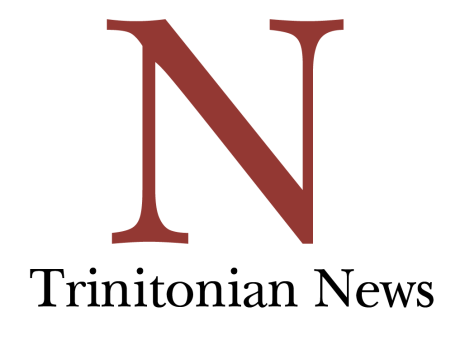Last Monday, Sept. 19, the Center for International Engagement held its annual Study Abroad Fair on the Coates esplanade.
Eleven Faculty-led Study Abroad (FLSA) programs and roughly 20 outside program providers were at the fair. Recently, Trinity has been working to increase the number of FLSA programs available to students.
“In 2010, it was only like Madrid and the Shanghai program … In the past years we’re increasing the number to give more access and options for students to go abroad on Trinity’s programs,” said Andre Martinez, study abroad advisor.
While some FLSA programs were initially independent of the Study Abroad office, there has been deliberate collaboration between all FLSA programs and the Center for International Engagement (CIE).
“I believe that the collaboration between Study Abroad and our FLSA programs allows faculty more time to plan the academic portion of the program while we assist with the program logistics,” Martinez said. “We are assisting faculty with marketing, flyers, posters advertising, STEP registration for students, paperwork, plus much, much more.”
Katsuo Nishikawa-Chavez, director of the Center for International Engagement, explained that many study abroad programs are not as rigorous as Trinity classes, and there is often no continuity between what the student does abroad and what they do when they return to campus.
Nishikawa-Chavez referred to this disconnect as a “Frankenstein approach.”
“The idea of doing faculty-led is to avoid that disjoint,” Nishikawa-Chavez explained. “So that you’re prepared, you have that experience and it’s a high-quality experience, and then you come back and we help you to do something with that experience.”
Benjamin Collinger, a sophomore who plans to major in international studies and history, explained the unique insights that Assistant Professor of political science Rosa Aloisi was able to provide on the Hague International Justice Program last spring since she worked in the field of international criminal justice in The Netherlands.
“Dr. Aloisi was an intern in the International Criminal Tribunal for the former Yugoslavia,” Collinger said. “So we got to hear her perspective on the things that she had seen while she was working there, the people that she knew, and that’s something that you can only get from a professor, and that adds a whole different layer to it.”
Nishikawa-Chavez explained that these “beyond the classroom” courses create cohesion between what students learn on campus and what they do while abroad.
“So it’s a class, and at one point in the class you go abroad for a short period, and you leverage what you were learning in the classroom. So this is akin to a chemistry seminar with a lab component,” Nishikawa-Chavez said.
The Hague program is one of seven faculty-led programs that involves both an on-campus course and a short period abroad. The abroad component of these courses are staggered throughout the semester to accommodate different schedules.
For example, trips to Cuba and London take place in December and January, before classes begin. Programs in Dominica and Nicaragua will take place over spring break, and programs in the Hague, Berlin and Iceland will take place in May.
In addition, there are short summer tour options specifically for athletes, and six longer summer programs that include course credits. These faculty-led programs are part of a larger initiative to get more students to go abroad.
“We need to be able to give everybody an international experience. And that means people with different schedules, with different abilities to pay and people with different interests,” Nishikawa-Chavez said.
Taylor Moser, a junior majoring in communication and business, explained the importance of scheduling in her study abroad experience.
“I’m super happy that they have these opportunities for people to go in the summer, because there’s a lot of majors that just don’t allow it,” Moser said.
Moser explained that with her academic course load and involvement with athletics and Greek life on campus, she would not have been able to go abroad for a full semester. The upper division business course offered on the trip met a requirement for her major.
This year, the Japan program will focus on political science and business, with classes at Kwansei Gakuin, a liberal arts university in Nishinomiya, Japan.
“Hopefully in the near future, engineering, psychology, C.S., accounting, chemistry and music students will all have programs that fit their needs and time constraints,” Nishikawa-Chavez said in an email. “Japan is an example of this, it can work, Dr. Myers, the chair of the C.S. department really wants to see this be a reality and we are working with him to create the best experience possible for his students.”
In addition to scheduling, many students worry about cost when deciding whether to go abroad. Nishikawa-Chavez stressed that President Anderson is very motivated to make study abroad financially accessible to more students.
“We’re working on that, that’s one of the big components that we want to talk about. So nothing has been decided, the only thing that we know for sure is that there will be some money for need-based grants,” Nishikawa-Chavez said.
Several new trips are forthcoming: a program at Tec de Monterrey Mexico for business and entrepreneurship, a social sciences program in Vietnam, a U.K. summer school program for the humanities, a program in Italy for theater, summer school programs in Taiwan and Mexico, a program in Senegal and STEM programs in Mexico and Puerto Rico.
Martinez emphasized the importance of starting early in planning your study abroad experience in order to plan ahead for graduation requirements.
“I want to see every first-year student, if possible, come through first steps,” Martinez said. “Start early. That’s the biggest thing.”
Students interested in going abroad are encouraged to sign up for a “First Steps” information session through the Trinity Study Abroad website.







